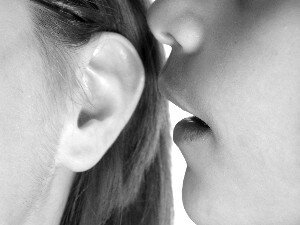NEWS- No lie? Locals admit they bend the truth
Americans have conflicting, and sometimes contradictory, feelings about lying, with 65 percent of respondents to a new Associated Press-Ipsos poll saying it was sometimes all right to lie to avoid hurting another person's feelings, even though 52 percent said lying was never justified.
Apparently white lies are an acceptable part of many lives, even though Americans dislike the idea of lying in general.
The 18th century German philosopher Immanuel Kant, who believed all lying was bad– even one that could save someone's life– would have agreed with the 52 percent. But most moral philosophers would disagree, said ethics columnist Randy Cohen, who called himself ``a big fan of lying.''
``Not only is lying justified, it is sometimes a moral duty,'' says Cohen. An obvious example is when lying to protect someone from serious harm. But much less extreme cases often call for lies, Cohen says.
An example he likes: Your fictional spouse, about to accept a Nobel prize, asks if he or she looks fat. ``If you're on the way to the award ceremony, you say, 'You look fabulous,''' Cohen instructs. ``Anything else would be cruel.'' If you're still in the hotel room, a suggestion of a different outfit might be appropriate.
Still, every lie has its cost, Cohen says, and that is just another factor to consider. One key cost is credibility: Once a person finds out you lied, you lose currency in their eyes.
In the poll of 1,000 adults taken June 23-27, 2006, four in 10 people said it was okay sometimes to exaggerate a story to make it more interesting, and about a third said it was acceptable to lie about your age. The poll was taken June 23-27 and had a margin of error of plus or minus three points.
A third also said it was okay to sometimes lie about being sick to take a day off work. Very few would admit to thinking it was acceptable to lie on a resume, cheat on taxes or lie to a spouse about an extramarital affair.
Among the groups more likely to say lying was sometimes appropriate: people aged 18-29, college graduates and those with higher household incomes. ``People have this idea that lying is bad,'' says Bella DePaulo, a visiting professor at the University of California, Santa Barbara who has studied the phenomenon of lying. ``But when you really start going through it, it's not that simple.''
In a study in the late '90s, DePaulo asked 77 college students and later, 70 people in the Charlottesville to track every lie, however small, in a journal for a week. Of the 77 students, only one reported having told no lie. Of the other 70 people, six made that claim."
``People who say lying is wrong are often thinking in the abstract,'' DePaulo says. ``In our real lives, we can't always pick honesty without compromising some other value that might be as important''– like maintaining a happy relationship.
If you are at a party and your partner is saying something you disagree with, for example, you might stay quiet, in the name of marital harmony.
Of course, there are inherent problems with any study that asks people to be honest about being dishonest.
In the AP-Ipsos poll, for example, four in 10 people answered that they had never had to lie or cheat. But one in 10 of those people said in the very next answer that yes, they might have told a lie in the past week.
Which means they might have misunderstood the question _ or they may have lied.

Pssst....
#